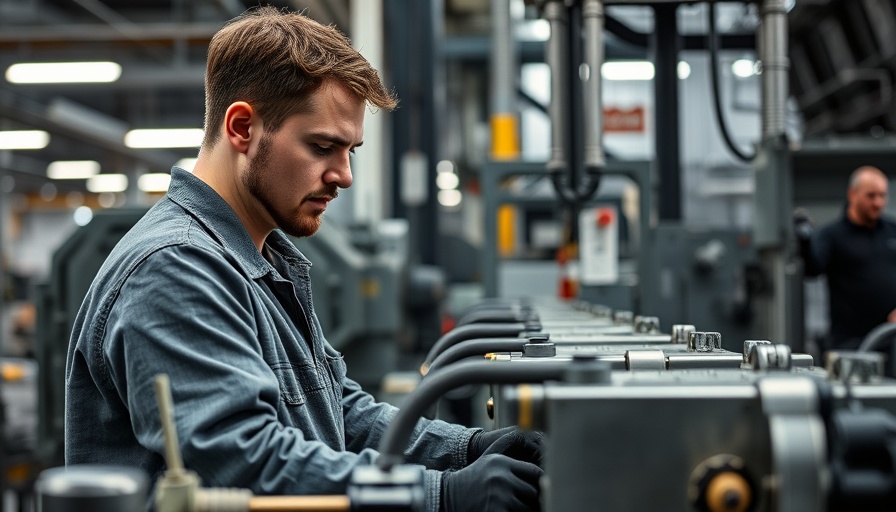
Georgia's Role as a Manufacturing Leader: A Closer Look
In a raw and unfiltered moment, U.S. Secretary of Energy Chris Wright visited the Rinnai America Corp. facility in Griffin, Georgia, underscoring the state's significance in the manufacturing sector. With over 200 jobs at stake, Wright's remarks aimed to highlight the importance of local manufacturing, pointing to Georgia as a powerhouse in the sector, particularly in these uncertain times.
The Implications of Regulatory Changes
During his speech at the event, Wright criticized the potential regulatory changes that he argued could jeopardize jobs at the Rinnai facility. Without mincing words, he expressed concern over policies from the current Biden administration that could lead to unintended consequences for manufacturing jobs nationwide. His alarm was largely directed at regulations created without public oversight, likening them to a bureaucratic move that could destroy livelihoods just as families were preparing for the holiday season.
The Investing Mindset: A Beacon of Hope
Contrary to concerns raised about the future of the Griffin plant, the latest projections from Rinnai's 2024 annual report paint a picture of growth, revealing plans for investing in the facility to introduce new products. This juxtaposition raises questions about the broader economic environment influenced by government policies. As Windsor stated, there is a commitment at Rinnai to expand operations and product lines, signaling optimism amid uncertainty.
Common Misconceptions: Manufacturing and the U.S. Economy
A popular misconception is that manufacturing jobs are on the decline across the U.S. However, events like Wright's visit serve to challenge that narrative. With companies like Rinnai poised not just to maintain but enhance manufacturing capabilities through investment, it is essential to recognize that manufacturing remains a key pillar of the American economy. Rinnai's ambitions indicate that growth is possible even in challenging regulatory environments, emphasizing the resilience of the sector.
The Community Impact: Jobs and Economic Health
Wright's visit to Griffin is pivotal for local morale, as it places a spotlight on community jobs tied to innovations in manufacturing. It's also a reminder that local economies thrive on such industries. Congressman Brian Jack highlighted this as a collective victory for Griffin, which is more than a small town—it’s a community that stands on the brink of economic progress through manufacturing. With plans for expansion on the horizon, the residents, many of whom might have doubted their job security, are offered a glimmer of hope.
Looking Ahead: The Future of Manufacturing in Georgia
As the manufacturing sector continues to adapt to meet modern challenges, it offers a preview of what lies ahead. The integration of advanced manufacturing techniques, including automation and sustainable practices, represents a shift that not only retains but could also create more jobs. The future looks brighter as Georgia stands at the forefront of this change, with companies like Rinnai leading the charge.
In conclusion, the story of the Rinnai facility is not just about one manufacturing plant. It represents a broader conversation about economic policy, local jobs, and the pivotal role that manufacturing plays in revitalizing communities. Growth and resilience can coexist with careful attention from authorities, and local support can help bridge the gap between policy and community health.
 Add Row
Add Row  Add
Add 




 Add Row
Add Row  Add
Add 

Write A Comment